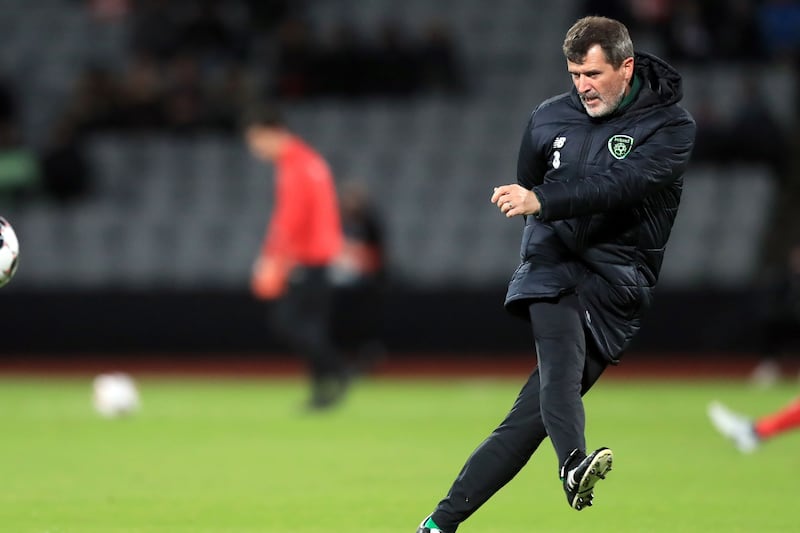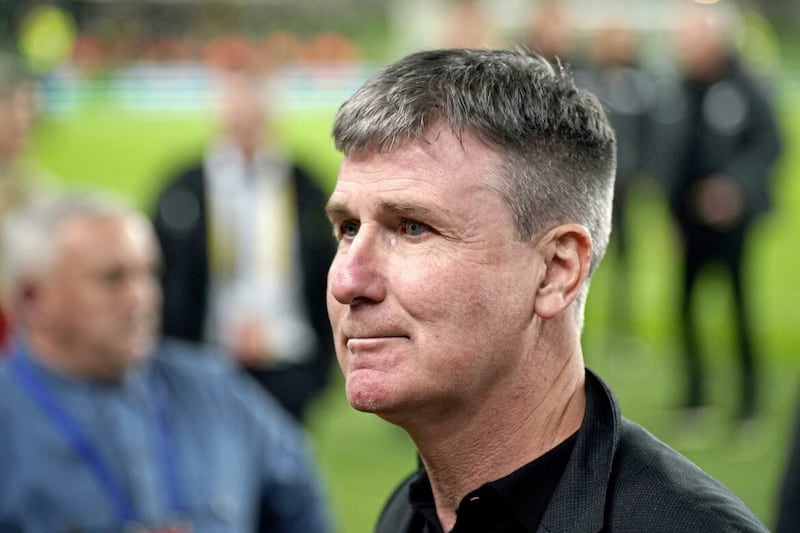STEPHEN Kenny has been given the backing of FAI chief executive Jonathan Hill and director of football Mark Canham but the Republic of Ireland manager still needs the support of the FAI board of directors if he is to stay in the post.
As things stand, Kenny’s position will be reviewed at the end of the Republic’s involvement in the qualifiers for Euro 2024. Kenny’s team finish a disappointing campaign - which has yielded one win and four defeats – with home games against Greece and Gibraltar in October followed by a trip to Holland in November.
Three wins could yet save Kenny’s skin and it would be a major surprise if the Tallaght native wasn’t allowed the opportunity to turn his term in office around, but CEO Hill admitted that a “different route” could taken when the FAI board meets later this month.
“It’s the board’s opinion that matters so, yeah, if the board felt they wanted to take a different route then we would discuss that different route,” said Hill.
“The board will discuss this in September. I will give my report as chief executive, we will have a broader review and discussion on all of these issues.
“We will wait to see as we always do in those meetings to see what comes out of it but the opportunity is there for all of the board members to give their view.”
Read more:
'When you get to this age, if you have one bad game, straight away it's he's too old, time to go'
Vera Pauw released because Republic of Ireland needed fresh approach says FAI CEO Hill
The writing is on the wall for Stephen Kenny after qualification failure
With Kenny almost certain to stay in charge until the conclusion of the Republic’s Euro 24 campaign (Ireland still have a mathematical chance of qualifying), the FAI are on the hunt for the successor to Vera Pauw as women’s manager.
Pauw’s contract wasn’t renewed despite Ireland’s first-ever appearance at a World Cup finals tournament and Eileen Gleeson has been appointed as interim manager for the Nations League games against Northern Ireland (home) and Hungary (away) later this month.
FAI Director of Football Mark Canham confirmed that the process of selecting a permanent replacement for Pauw has begun.
“We have a clear vision of what we want that to look like,” he said.
“We're going through that process as of now. We are seeking some external support to help with that process to make sure we look broadly and widely across the women's market.
“We would love to make a permanent appointment within the Uefa Nations League window, we don't know when that will be. In football sometimes things can happen quickly and sometimes things can take a bit longer.
“Our aim is to have an appointment within the Nations League window.”
There was good news for the FAI’s financial situation. It was confirmed that the Association has reduced its debt from E63million to E43million and, according to its projections, will be debt-free by 2031. The men’s senior team does not have a main sponsor at present and Hill says that the FAI are working to bring one in, while evaluating a new approach.
“The 3 deal (the telecom company ended its 10-year sponsorship in July 2020) was a good deal but it wasn't as big as I think people were led to believe at the time,” said Hill.
“(It was) less than the deal we have in place now with Castore as training and sponsorship partner. At the time the focus was on the lead sponsor and less so on the secondary sponsors.
“What Sean (Kavanagh, commercial director) has tried to do is elevate the level and value of those secondary sponsors that have come in. He's done exactly that with Circle K and we have that with Aviva and we are hopefully close to announcing a third partner at that level.
“It is an option for us to have a Champions League-style model of having no men's national team sponsor and having, say, four-or-six secondary sponsors who cumulatively would be significantly more than either the 3 deal or what we might find in the market in relation to a new men's national team sponsor.”








